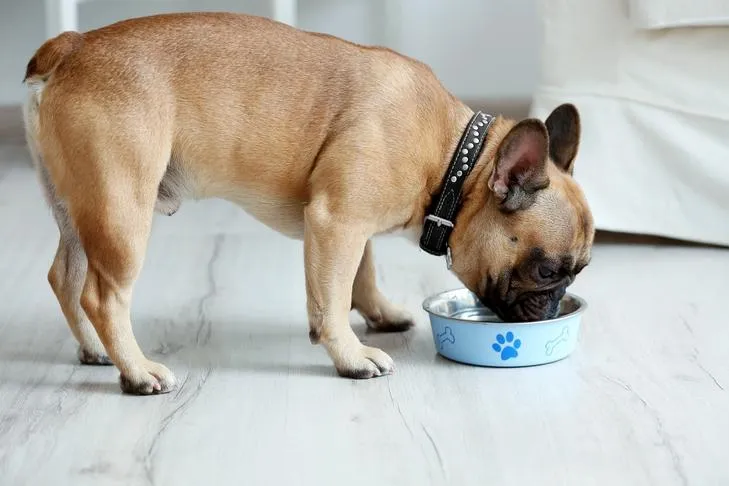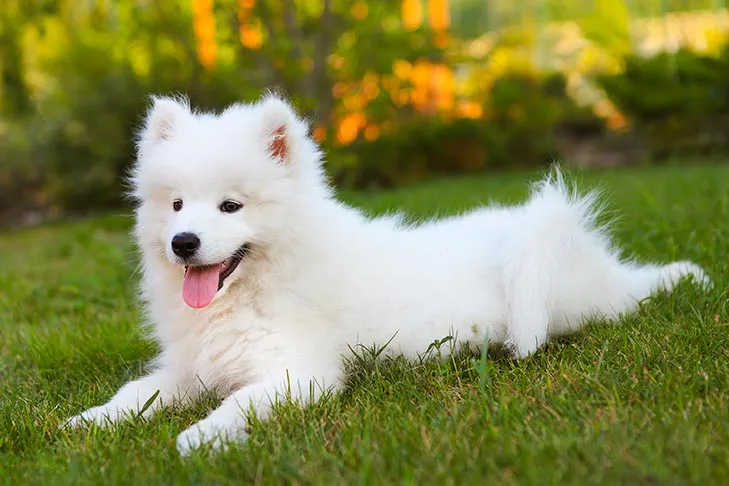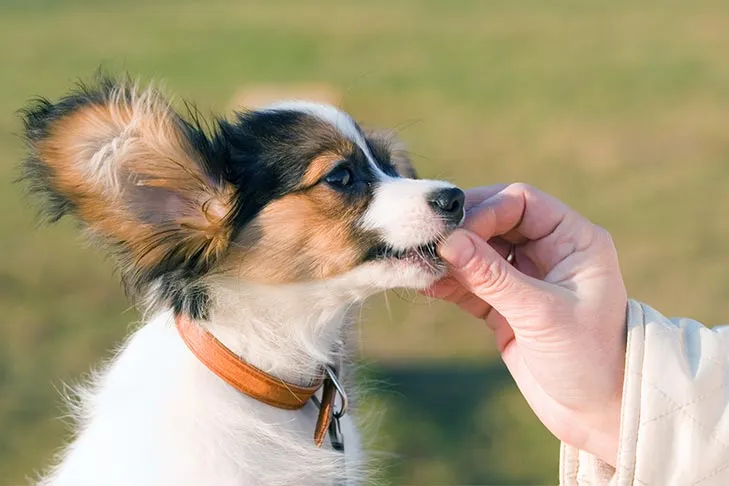As loving pet parents, it’s natural to want to share everything with our furry companions, especially when they gaze at us with those adorable, pleading eyes during meal times. However, a dog’s digestive system and nutritional needs are vastly different from a human’s, meaning that what’s good for us can sometimes be harmful, or even deadly, for them. Navigating the world of human foods safe for dogs can be tricky, but understanding the dos and don’ts is crucial for their health and happiness. This guide from Dog Care Story will help you distinguish between the best treats and the most dangerous dangers, ensuring your canine friend enjoys a healthy diet. For a detailed exploration of foods your dog should eat, check out our article on what can dogs have to eat.
Human Foods Your Dog Can Safely Enjoy (in Moderation)
Many human foods, when prepared correctly and given in appropriate amounts, can offer nutritional benefits or simply serve as a delightful treat for your dog. Remember, moderation is key, and these should always complement a balanced dog food diet, not replace it.
Bread
Small amounts of plain bread are generally safe for your dog, provided it contains no spices or potentially toxic ingredients like raisins. While bread offers no significant health benefits and can contribute to excess carbohydrates and calories, a tiny piece as an occasional treat is usually fine. Homemade breads tend to be better as store-bought varieties often contain unnecessary preservatives, but it’s best to offer it sparingly.
Cashews
Cashews can be a good source of calcium, magnesium, antioxidants, and protein for dogs. However, due to their fat content, they should only be given in small quantities to avoid weight gain. Always ensure cashews are unsalted, as too much sodium can be problematic for dogs. A few unsalted cashews can make a pleasant treat.
Cheese
Most dogs can enjoy cheese in small to moderate amounts, provided they are not lactose intolerant (a rare but possible condition in dogs). Lower-fat varieties like cottage cheese or mozzarella are preferable due to cheese often being high in fat. Many dogs also enjoy specialized dog chews made from dried cheese, such as Himalayan dog chews.
 An American Dog rests its head on a kitchen table, looking intently at a piece of cheese.
An American Dog rests its head on a kitchen table, looking intently at a piece of cheese.
Coconut
The unique properties of coconut, including its lauric acid content, can help dogs combat certain bacteria and viruses. Coconut can also be beneficial for improving bad breath and alleviating skin conditions such as hot spots, flea allergies, and general itchy skin. Both coconut milk and coconut oil are safe for canine consumption. Just be sure to remove the hard, furry outer shell of the coconut, as it poses a choking hazard or can cause an intestinal blockage.
Corn
Corn is a staple ingredient in many commercial dog foods, recognized for its nutritional value. When sharing corn with your dog, always ensure it is removed from the cob. The cob itself is difficult for dogs to digest and can lead to dangerous intestinal blockages. Opt for cooked kernels or a fun squeaky corn toy instead.
Eggs
Fully cooked eggs are an excellent source of protein for dogs and can even help soothe an upset stomach. It’s crucial that eggs are cooked thoroughly, as raw egg whites contain avidin, an enzyme that can interfere with biotin absorption and potentially lead to a biotin deficiency over time. Scrambled or boiled eggs, without any seasonings, are best.
Fish
Fish provides good fats and essential amino acids, contributing to your dog’s overall health. Salmon and sardines are particularly beneficial. Salmon is rich in vitamins and protein, while sardines offer digestible bones that supply extra calcium. When feeding fish, always ensure it is fully cooked and cooled. For most fish (excluding sardines), carefully remove all tiny bones to prevent choking or internal injury. Limit fish intake to no more than twice a week.
 A French Bulldog enjoys a meal from its bowl at home.
A French Bulldog enjoys a meal from its bowl at home.
Ham
While not the healthiest option, ham is generally okay for dogs in very small quantities. Its high sodium and fat content mean it should only be an occasional treat, not a regular part of their diet. If you choose to share a tiny piece, make sure it’s plain and well-cooked.
Honey
Honey is a nutrient powerhouse, boasting vitamins like A, potassium, calcium, magnesium, copper, and a wealth of antioxidants. Giving dogs small amounts of local honey may even help with seasonal allergies by gradually introducing small amounts of pollen, thereby building immunity. Beyond consumption, honey’s antimicrobial properties make it useful as a topical treatment for minor burns and superficial cuts.
Milk
Dogs can drink milk, but caution is advised. Some dogs are lactose intolerant and may experience digestive upset, such as diarrhea, after consuming dairy. If you are unsure about your dog’s tolerance, it’s best to offer only a very small amount and observe them. Plain water remains the best hydration choice for dogs.
Peanut Butter
Peanut butter can be a fantastic source of protein, heart-healthy fats, and vitamins B and E, along with niacin, for dogs. The healthiest choice is raw, unsalted peanut butter. It is absolutely critical to read the label carefully and ensure the peanut butter does not contain xylitol. Xylitol is a common sugar substitute that is highly toxic to dogs and can cause a rapid drop in blood sugar, liver failure, and even death.
Peanuts
Unlike some other nuts (such as almonds), plain peanuts are safe for dogs to eat. They are packed with beneficial fats and proteins. However, due to their fat content, peanuts should be given in moderation to avoid potential pancreas issues. Always opt for unsalted peanuts, as excessive salt intake is difficult for dogs to process.
Popcorn
Air-popped popcorn, unsalted and unbuttered, is an acceptable treat for dogs in moderation. It contains riboflavin and thiamine, which support eye health and digestion, as well as small amounts of iron and protein. Ensure all kernels are fully popped before offering them to your dog, as unpopped kernels can pose a choking hazard.
 A Samoyed puppy lies peacefully in green grass outdoors.
A Samoyed puppy lies peacefully in green grass outdoors.
Pork
Cooked pork is a highly digestible protein source for dogs, rich in amino acids. While it contains more calories per pound than some other meats, it can be a good addition to their diet. It may also be a suitable protein option for pets with allergies to more common meats. Ensure it is plain, without seasonings or excessive fat. For more ideas on nutritious meals, explore what can dogs eat for dinner.
Quinoa
Quinoa is increasingly found in high-quality dry dog foods due to its impressive nutritional profile. It serves as a healthy alternative to common starches like corn, wheat, and soy, which are often used in kibble. When cooked and unseasoned, it’s a safe and beneficial grain for dogs.
Salmon
As previously mentioned, fully cooked salmon is an outstanding source of protein, healthy fats, and amino acids, boosting joint health, brain function, and the immune system. It is critically important to never feed your dog raw or undercooked salmon, as it can contain parasites that cause severe illness, including vomiting, diarrhea, and dehydration, and in extreme cases, can be fatal. Thorough cooking eliminates these dangerous parasites.
Shrimp
A few fully cooked shrimp, with the shell (including tail, head, and legs) completely removed, are fine for your dog as an occasional treat. Shrimp are low in fat, calories, and carbohydrates, while being rich in antioxidants, vitamin B-12, and phosphorus.
Tuna
Dogs can consume small amounts of tuna. Cooked, fresh tuna is an excellent source of omega-3 fatty acids, which promote heart and eye health. For canned tuna, it should be given sparingly, prepared only in water (not oil), and free of any added spices, due to concerns about small amounts of mercury and sodium.
Turkey
Plain, cooked turkey is safe for dogs. Before offering it, be sure to remove any excess fat, skin, and especially bones. Poultry bones can splinter when chewed and digested, leading to dangerous blockages or tears in the intestines. Always avoid turkey with excessive salt, seasonings, onions, or garlic, as these can be toxic to dogs.
 A Papillon puppy gently takes a treat from a human hand.
A Papillon puppy gently takes a treat from a human hand.
Wheat or Grains
Contrary to popular belief, most dogs do not need to follow a grain-free diet. Grains like wheat and corn are valuable sources of protein, essential fatty acids, and fiber. If your dog has specific allergies, your veterinarian may recommend avoiding certain grains, but generally, they are a healthy component of a dog’s diet. Consult your veterinarian for personalized dietary recommendations.
Yogurt
Plain yogurt is a perfectly acceptable snack for dogs, and its active bacteria can provide beneficial probiotics to strengthen their digestive system, provided they can digest dairy products without issues. Always choose plain yogurt, and strictly avoid any varieties with added sugar or artificial sweeteners, especially xylitol, which is highly toxic.
Important Precautions and Foods to Avoid
While the list of safe human foods for dogs is extensive, it is equally, if not more, important to be aware of foods that are dangerous. Some seemingly innocuous items can cause serious illness, or even be fatal. Always keep these toxic foods and potentially harmful preparations away from your dog. If you suspect your dog has ingested something toxic, consult your veterinarian immediately.
Based on the safe food discussions, here are critical precautions and types of human food elements your dog should avoid:
- Raisins and Grapes: Explicitly mentioned as toxic under bread.
- Xylitol: This artificial sweetener, found in many sugar-free products including some peanut butter and yogurts, is highly poisonous to dogs.
- Raw or Undercooked Meats/Fish: Can contain parasites, bacteria, and other pathogens that are harmful, as highlighted with salmon and eggs.
- Bones: Especially cooked poultry bones, but generally any animal bones can splinter and cause choking, internal injuries, or blockages. This caution was noted with fish and turkey.
- Corn Cobs: Indigestible and a significant choking and blockage risk.
- Furry Coconut Shell: Can get lodged in your dog’s throat.
- Raw Egg Whites: Can lead to biotin deficiency over time.
- Excessive Salt: Found in salted peanuts, ham, and some canned tunas. Too much salt is difficult for dogs to process and can lead to sodium ion poisoning.
- Excessive Sugar/Artificial Sweeteners: Found in sweetened yogurts and other processed foods, these can cause dental problems, obesity, and in the case of xylitol, toxicity.
- Excessive Fat: Foods like ham, high-fat cheeses, and too many peanuts can contribute to weight gain and potentially pancreatitis.
- Spices, Seasonings, Onions, and Garlic: Found in seasoned turkey and ham, these ingredients can be toxic to dogs, causing digestive upset or more severe health issues.
- Lactose Intolerance Triggers: While some dogs tolerate dairy, many are lactose intolerant, so milk and high-lactose cheeses should be given cautiously.
- Unpopped Popcorn Kernels: A choking hazard.
For a comprehensive list of what foods dogs should not eat, and further details on specific toxic items, we encourage you to visit our articles: list of what foods dogs should not eat, what foods can dogs not eat list, and what fruits not to give dogs.
Conclusion
Sharing food with your dog can be a rewarding experience that strengthens your bond, but it requires careful consideration and knowledge. By understanding which human foods are safe and which are dangerous, and by always adhering to principles of moderation, proper preparation, and observation, you can ensure your dog receives treats that are both enjoyable and beneficial. Always err on the side of caution, and when in doubt about any food, it’s best to consult with your veterinarian. They can provide tailored advice based on your dog’s specific health needs and dietary requirements. Continue your journey to being the best pet parent by exploring more valuable insights and tips on dog care right here at Dog Care Story!
